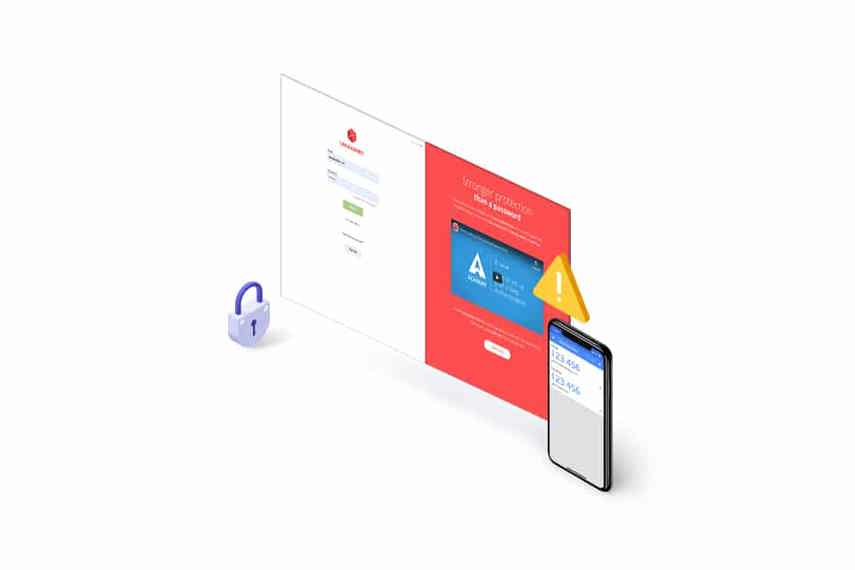
The day-to-day work of accountants and business advisors is radically different today compared to 20 years ago – and the pace of change is increasing. These are the latest changes and trends that you and your practice managers need to be aware of.
The 10 accounting & advisory industry trends you need to know:
The future workforce is remote - but not as remote as other sectors
The business accounting and advisory sector has not escaped the same trend towards remote working as the rest of the world. However, the shift towards digital work mediums may not be as heavy here as in other areas.
Just less than half (46%) of accountants said they were interested in working from home, compared to 62% of respondents across industries (Arizent). Although, BDO’s internal research, reported by the Financial Times, showed this figure was a little higher, at 79% (Financial Times). Additionally, most accountants (61%) told Arizent they were going to keep their current office footprint - due to the client-facing nature of their work.
You could read this information two ways. Either your business doesn’t need to think about remote working because the majority of staff may not be interested, or that a reasonably high proportion do want it, even if it’s not as many as in other sectors.
How to use this trend as an opportunity
Practices that invest in virtual communication tools, cloud services, digital accounting platforms and online data storage could offer a competitive recruitment package to new job candidates, appealing to both those who want to, and don’t want to, work from home.
Just watch out for the increase in cyber security requirements that comes with these investments. See trend #4 below!
 While your clients will still want to meet face to face, offering hybrid models helps you attract the right staff.
While your clients will still want to meet face to face, offering hybrid models helps you attract the right staff.Digital automation yields productivity dividends
Business automation is not about taking jobs away from human staff members, but about handling menial, repetitive tasks so that real staff can focus on value-adding, strategic activities (see trend #7). Within the accounting & advisory context, automation tools include:
- Automatic reconciliation, P&L or accounts payable.
- Automated invoices.
- Extracting data from scanned documents and validating against digital records.
- Document management and data look-up.
- Know-your-customer checks and customer relationship management.
- Automated client onboarding.
To give you an idea as to the potential power of automation, as much as 42% of financial activities can be automated (McKinsey). But do these tools work? Well, 60% of accounting professionals agree automation saves “time and money” (Sage). Plus, the same survey found that larger companies (which tend to be 40% more automated than smaller companies) can close their books 15% faster due to automation.
How to use this trend as an opportunity
Advanced digital tools built for the business accounting environment, quite simply, make work easier – and more efficient. Compared to old spreadsheets or legacy on-premise systems, these tools (often cloud-based) can offer advanced software integration, scalability, agility and, of course, automation.
One thing to note: It’s wise to only invest in these tools after identifying where the bottlenecks and inefficiencies are in your existing processes. You must invest in processes first before technology, or else you risk buying the wrong software.
 Good processes - and the technology to support them – are key to productivity, both for your practice and for your clients.
Good processes - and the technology to support them – are key to productivity, both for your practice and for your clients.Demand for blockchain services rising
Love it or hate it, blockchain technologies are here and they’re getting popular.
While cryptocurrencies may not have hit the mainstream as some expected (and indeed many currencies saw a major setback in 2022), there are a number of businesses looking into other blockchain technologies as new areas of opportunity. These include:
- Tracking the custody of digital assets.
- Data sharing among third-parties.
- Intercompany accounting.
- Supply chain transparency.
80% of senior executives believe their industries will see new revenue streams created due to blockchain technology (Deloitte). On top of that, 76% think digital assets will outright replace fiat currency within a decade.
How to use this trend as an opportunity
How comfortable is your company with offering advice regarding blockchain and its many emerging services?
It’s hard to say what will come next in this area as a great many past promises have not come to fruition. But, it continues to grow and it’s all but a certainty that more businesses will adopt some variation of blockchain-based working in the coming decade.
Now could be the opportunity for you to experiment with services in this area on a small scale, to test and to optimise, so you’re already a trusted advisor as the trend emerges.
More technology means more attack surfaces for cyber criminals
The move to remote working and cloud-based technology has been a boon for productivity, but it’s also created significantly more opportunities for cyber criminals to steal, spy or destroy. To put that in numbers: 79% of organisations agreed the increase in remote work had “adversely affected” their cyber security, and 45% had suffered a mobile-related compromise in the past 12 months (Verizon).
Moving to a highly cloud-based workforce too rapidly can lead to serious vulnerabilities. Some of these are technology-based (such as in the case of Zoom exploits or misconfigured cloud drives), or human error (most companies allocate only one or two hours of cyber awareness training per year for employees - Proofpoint).
How to use this trend as an opportunity
As you invest in new technology – and advise clients in this area – take time to consult security partners to ensure you migrate to the cloud in a safe and secure manner – and can offer your clients practical ways to do the same. Some things to watch out for include:
- Social engineering: Cyber criminals will use fake emails, social media accounts, and entire fake websites to create trust. You must be on the lookout!
- Ransomware: If someone can get into your system, they may deploy ransomware. One way to mitigate this risk is to regularly back up your system, and check that you can restore the backup if need be.
- Cloud misconfiguration: As you migrate to any cloud technology, make sure it’s set up properly - passwords are changed from defaults, two-step authentication is in play, access levels are appropriately restricted, and an IT person checks your open ports.
 Technology updates come with added security requirements – including features such as 2FA.
Technology updates come with added security requirements – including features such as 2FA.Digital marketing is critical to cutting through the noise
Pandemic lockdowns have pushed more sectors than ever before into the online world, packing the web full of competing digital noise.
At the same time, digital marketing technologies continue to expand; with so many tools on the market even total beginners are able to deliver effective campaigns for not too much money. This is, of course, a double-edged sword - the easier it gets, the more people do it, and the more auction-based ad prices rise.
This changes customer expectations, as they grow used to seeing things done a certain (digital) way. In fact, pressure here is so great that “marketing demands” was ranked the top factor influencing accounting culture in 2022 (FinancesOnline).
Where letter drops, client referrals, word of mouth and TV advertising all used to work just fine, nowadays customers tend to expect businesses to have an optimised website, a strong social media presence and, especially in the services sector, a library of useful content.
How to use this trend as an opportunity
Digital marketing isn’t a box to tick or a drain to the budget - view it as a critical area of your practice. By carefully optimising your strategies, picking the right channels and using data to back up your decisions (see trend #6), you should be able to grow your customer base, increase the lifetime value of existing customers, and announce new services with gusto.
Worried about spending money during a rocky economy? Consider this: 2023 may be the year for a global recession, but marketing may help you succeed during this kind of economic stress. Looking at past recessions, companies that spent on marketing throughout the period had stronger business performance results than competitors (HBR, International Journal of Research in Marketing).
Data supercharging decision-making
One of the serious benefits of digital and cloud-based technology is that business accounting firms that utilise them have a huge amount of data to play around with.
Data enables evidence-based decision-making in almost all areas of operations. By gathering, cleaning, storing and analysing big data, leaders can quantify what’s been happening in their business, which factors affect each other, how much the business is gaining or losing in key areas, how all of this information has trended over time - and what might happen next.
One paper found that big data analytics “significantly and positively” impacts operational performance, business financials, business process performance, dynamic capabilities and sustainability performance (Emerald).
How to use this trend as an opportunity
We are not yet at peak big data adoption in the business accounting sector, which means any organisation that invests in data analytics tools could gain a serious competitive advantage (less than half of accountancies had adopted this technology as of 2020, with only 20% more planning to adopt it by 2023 - Sage).
Some key considerations you’ll need to think about:
- Platforms must be able to integrate with each other. Data is at its best when it can be compared with information across software suites.
- You may need to hire in new digital skills to maximise the value of a data investment.
- Gathering and storing data will require new privacy policies in line with compliance regulations, as well as enhanced cyber security requirements.
Learn more: Business Intelligence: Your Ticket Out of a Crisis
 Advising on topics such as lean processes adds a string to the bow of advisory and accounting firms.
Advising on topics such as lean processes adds a string to the bow of advisory and accounting firms.Uncommon services on the rise
Customers are thinking a lot about value these days. This had led to two trends: a rise in uncommon, value-based services, and value-based pricing (trend #8 below).
A Spotlight Reporting paper recently found that, since the Covid-19 pandemic, there’s been an increase in demand for business accounting and advisory services that were previously not as popular. These include:
- Cash flow forecasting.
- Strategic planning and forensic accounting.
- Lean processes.
- Payroll.
- Outsourced CFO.
Financial services related to environmental sustainability is also a new opportunity, as described in trend #10. Of course, blockchain advisory like we talked about above also fits in here.
How to use this trend as an opportunity
It may be time to put together a list of potential services you could seek to grow, and put out a survey to your customers. Let people tell you what they want.
Data-based decision-making is the key to success in modern business accounting, so you shouldn’t turn services on or off based on gut feel. Reach out to customers, host workshops, talk to salespeople where applicable, and find out quantifiably what people are asking for.
No more hourly billing - value-based pricing is the future
Hourly billing may be a thing of the past. As technology makes work quicker, many accountancies are losing money by charging their clients hourly because, well, the work doesn’t take as long!
Customers are also driving this change. Now that everyone has a website, social media presence and probably a number of reviews online, prospective customers are able to shop around when it comes to business accounting, hunting for the best balance between price and value.
Value-based pricing is an answer to these problems.
How to use this trend as an opportunity
What is value-based pricing? Bundling services together with a fixed price. You can tell customers up front what a service or package will cost, and your company knows exactly what it will earn.
This separates income from time, and reduces the likelihood of a client argument - no one will be surprised by the bill if the bill was agreed upon in advance.
If you’re worried that this will mean your business earns less (by fixing prices but then taking too long to do the work), it will encourage you and your people to focus on evidence-based decision making and optimising for efficiency. Automation technologies will help you focus on value, giving time-consuming number-crunching tasks to the computer.
Advisory add-ons a revenue opportunity
The separation between traditional business accounting and advisory services is closing. Over half (56%) of accountancies are offering an even split of accounting and advisory, and 80% intend to offer more advisory in future (Spotlight).
In this age of value, it’s very important that business accountants are able to differentiate themselves from competitors, and show their value to customers, by offering more than just the old payroll and tax services. Indeed, offering advisory services could increase monthly revenue by 50% (CPA). That is, survey respondents told CPA they were willing to pay 50% more if they knew an advisory service was attached to their accountant.
How to use this trend as an opportunity
This is clearly a growth opportunity. If your organisation does not yet offer business advisory, or only dabbles, take this as the call to consider adding more options.
 Sustainability advice and reporting represents a new value stream for accounting firms.
Sustainability advice and reporting represents a new value stream for accounting firms.New opportunities in environmental sustainability
Accountants themselves may not have as many opportunities to be more sustainable as, say, a manufacturer with a global supply chain. However, environmental sustainability is a potentially lucrative - and growing - opportunity for business advisory specialists.
Most accountants agree that the profession has a huge opportunity to help customers be more sustainable - three-quarters to be exact (ACCA).
Business accountants tend to know their customers inside and out. This enables them to provide a unique perspective - both that of an outside observer, but also one deeply ingrained within the business.
How to use this trend as an opportunity
Could your organisation offer a sustainability-based package of services? Areas of opportunity include:
- Risk assessments
- Reporting on environmental measures
- Identifying costs and opportunities (i.e. supply chain changes)
You may need to do a degree of marketing to get the word out and convince customers that this is the service for them. 54% of accountants told the ACCA survey above that their biggest barrier to success in this area was the fact that sustainability was not viewed as the responsibility of finance teams. Support from leadership was also an issue (32%) and a lack of data (28%).
